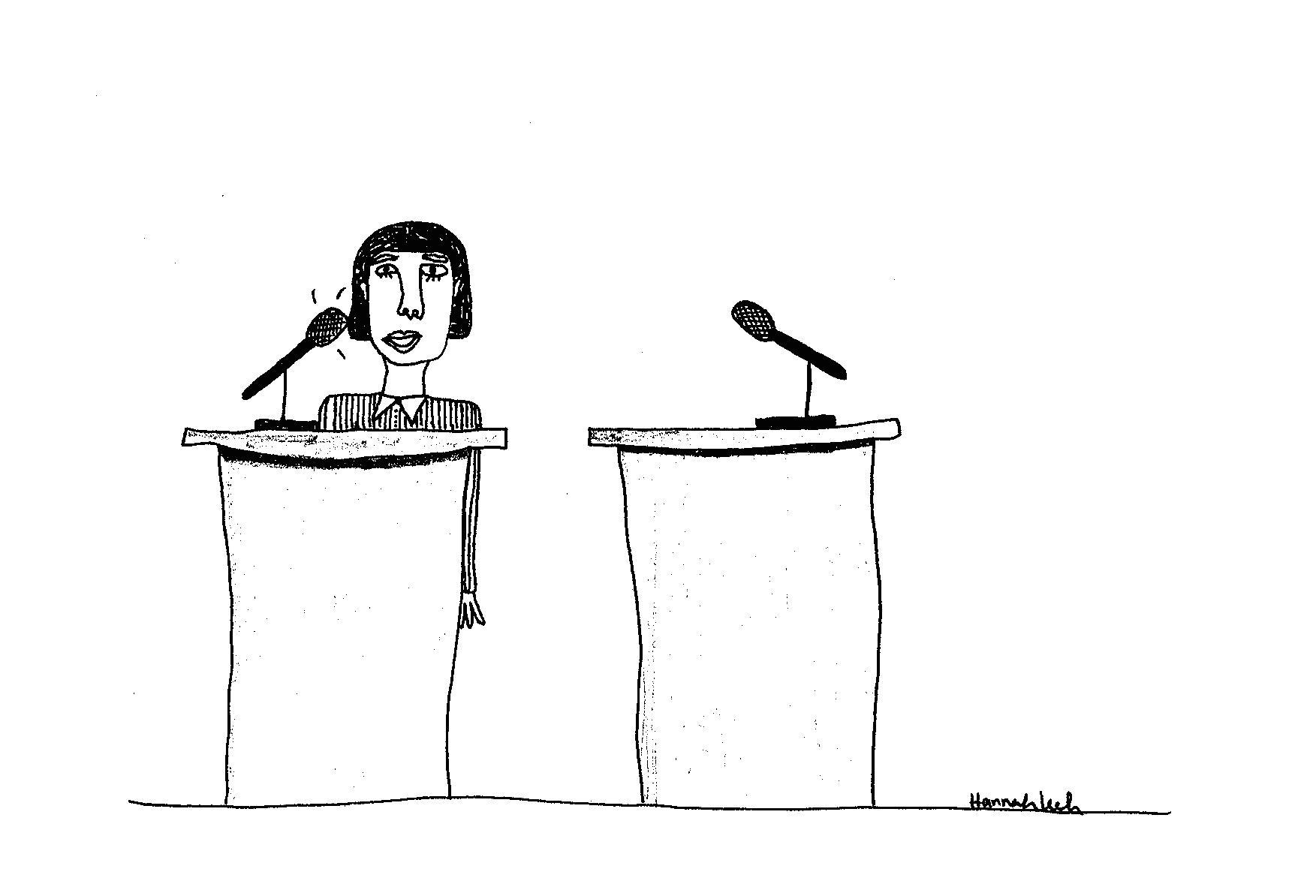
By Caleb Diehl /// Editor-in-Chief
On Sept. 14, Lewis & Clark blocked Politics Club President Daniela Lopez (’16) from bringing Monica Wehby, a Republican candidate for U.S. Senate in support of the two plaintiffs who won the right to same-sex marriage in Oregon this summer. That’s a problem. Student clubs deserve more freedom to choose their own speakers.
Granted, the issue is a little more nuanced. LC is classified as a 501(c)3 non-profit. That means the college risks forfeiting its tax-exempt status if it endorses a political candidate. Hosting a political speaker on campus without inviting their opponent qualifies as an endorsement.
Here’s where it gets interesting: Politics Club is not an arm of the college, like the Office of the Provost or the Dean of Students. Legally, student groups can invite whomever they want to take the floor.
Director of Student Activities Jason Feiner and Vice President, Secretary and General Counsel David Ellis put undue strain on Lopez. On the day Wehby planned to arrive, they told Lopez she needed to haul Jeff Merkley, Wehby’s Democratic challenger for Senate, to campus. Poor timing aside, it’s not clear exactly how the appearance of Wehby would have put LC in immediate legal trouble (remember, Politics Club isn’t technically part of LC.) Feiner and Ellis overreacted out of caution.
Though Politics Club is nonpartisan, administrators’ decision to govern the event planning of a student club could threaten the activities of politically-charged organizations. Let’s explore hypotheticals. What if Amnesty International wanted to invite a prison abolitionist and allow as much time as possible to hear their arguments? What if students formed a gun rights club and wanted to invite a National Rifle Association supporter without coordinating a debate with an opponent? What if a club wanted a passionate speaker but couldn’t afford the speaking fee for an opponent’s appearance? Many proponents of the causes students advocate are politicians. Clubs should be allowed to hear these speakers’ arguments without framing every event as a debate.
Of course, the college raises important legal issues. We wouldn’t advocate any actions that would jeopardize our status as a non-profit.
But this isn’t a legal problem, and a liberal arts school must promote intellectual freedom. Students must be allowed to thrust controversial ideas and politicians into the spotlight. There might come a time when giving a politician full time to elaborate on an issue without worrying about the counterarguments of a rival would prove invaluable to on-campus discourse. We’d like to see more students speak out for their speakers.
Subscribe to the Mossy Log Newsletter
Stay up to date with the goings-on at Lewis & Clark! Get the top stories or your favorite section delivered to your inbox whenever we release a new issue.

Leave a Reply